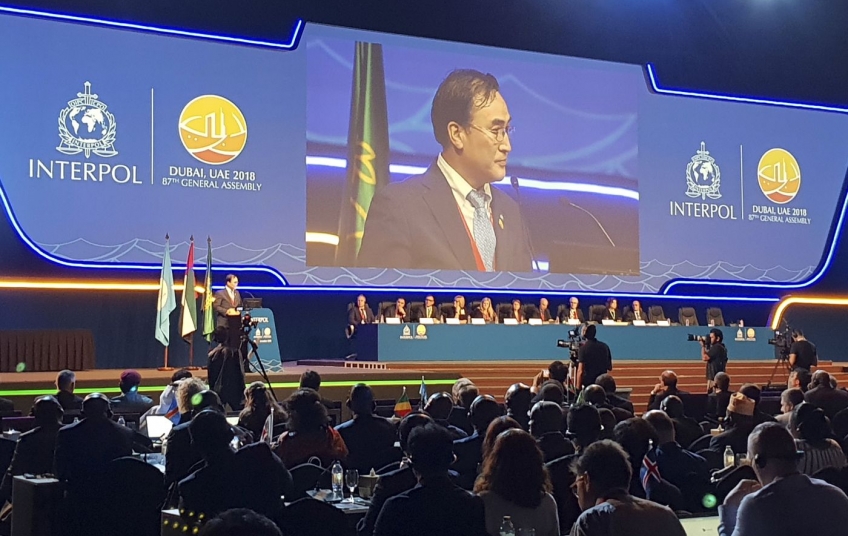South Korean named Interpol president in blow to Russia
The Washington Post informs that South Korea’s Kim Jong Yang was elected as Interpol’s president, edging out Alexander Prokopchuk, a longtime veteran of Russia’s security services who was strongly opposed by the U.S., Britain and other European nations. The White House and its European partners had lobbied against Alexander Prokopchuk’s attempts to be named the next president of the policing organization, saying his election would lead to further Russian abuses of Interpol’s red notice system to go after political opponents and fugitive dissidents.
Kremlin foes including financier Bill Browder, Mikhail Khodorkovsky and Alexei Navalny have warned that naming a top Russian police official to lead the international law enforcement agency will undermine Interpol and politicize police cooperation across borders.
Mikhail Khodorkovsky wrote in an opinion piece for The Guardian: “In the case of a country such as Russia, the vulnerabilities of the Interpol system are clear. The criminal group that is in power uses the law enforcement system to protect its leaders’ interests against those of the Russian people. As a result, the police do not fight organised crime. They cooperate with it. Criminal investigations are often a tool to extort money or steal assets. They have little to do with solving crimes and pursuing justice.” He continues: “Appointing a member of Russia’s criminalised security apparatus to head Interpol will undermine its values and signal to governments across the world that the Russian state’s abuses of the law are acceptable. It will also delay much-needed reform of the organisation that is now under way.”
Another prominent critic of Putin, Vladimir Kara-Murza in his op-ed for The Washington Post wrote that “Politically motivated alerts” have been a favorite Kremlin tactic, used to legitimize its prosecution of political opponents and make their lives more difficult by limiting their movements.
Kara-Murza writes, that “among those targeted were Vladimir Gusinsky, the former owner of Russia’s leading independent media group; Leonid Nevzlin, vice president of Yukos Oil, who was indicted as part of the Kremlin’s campaign against the company; Eerik-Niiles Kross, an Estonian politician; Boris Berezovsky, once Russia’s most influential “oligarch”; Akhmed Zakayev, Chechen prime minister in exile; and Nikita Kulachenkov, an activist at Alexei Navalny’s Anti-Corruption Foundation. Among the most recent targets of Kremlin-inspired “red notices” was Bill Browder, a U.S.-born financier who has spearheaded the international campaign for targeted sanctions on corrupt officials and human rights abusers in the Russian government.”
Bill Browder wrote in his op-ed: that he’s “working with lawyers and other victims on an initiative to apply Interpol’s own rules to suspend Russia from using the Interpol system. Its serial abuse is well documented and undeniable. It would be an absurd and Kafkaesque scenario if — rather than Russia being suspended — one of Putin’s henchmen were to become the leader of one of the world’s most important law enforcement institutions. Interpol plays a crucial role in tracking and apprehending fugitives around the world. To allow Interpol to be commandeered by one of the most criminal dictators on the planet serves the interests of no one but the Kremlin.” He called on “all democratic and transparent nations to band together and use their influence to ensure that Interpol does not debase itself by effectively becoming an arm of the Russian mafia.”
Interpol had to elect a new president after Meng Hongwei vanished and then was detained in China as part of a wide anti-corruption sweep there according to the Chinese officials.
Prepared by Marina Muradyan





